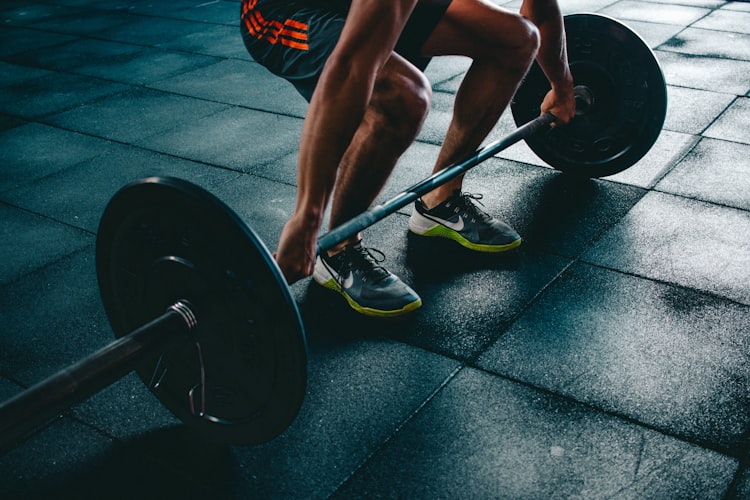Stress and sleep apnea have a complex relationship. Studies have found that feeling stressed out or anxious can contribute to a wide variety of sleep disorders, including insomnia and sleep apnea.
At the same time, sleep apnea causes interruptions to sleep that keep you from getting a full night’s rest. This leaves you feeling fatigued and emotionally on edge in the morning, which can make everyday situations feel more stressful.
Throw in the current global COVID-19 pandemic, and many people are sleeping worse than ever before. As the Sleep Foundation notes, disruptions to normal routines, anxiety about the pandemic, and social isolation are causing more people to have trouble sleeping than ever before.
While you can’t control everything that is going on in the world around you, a few basic lifestyle changes will help you reduce everyday stress and anxiety and sleep better.
1. Exercise
Exercise is much more than a great distraction from your stressors. When you exercise, your body produces endorphins, which are a natural mood-enhancing hormone. You’ll feel much better after 30 minutes of exercise, even if you’re a bit sweaty. As you improve your physical fitness, you’ll also improve your self-esteem, which can give you more confidence to confront daily challenges.
Exercise gives you an opportunity to temporarily forget about your stressors, because you will be focused on the movements your body needs to make to get a good workout in. Choosing an activity you love and scheduling it in at a set time each day will give you greater motivation to keep working out.
Better yet, exercising during the day will help you sleep better. Avoid exercising late at night, however, as this can make it harder to fall asleep.
2. Meditate
Meditation can help you relax your muscles and your mind so you can put stressful situations in the proper perspective. Many meditation practices focus on breathing and visualizing a relaxing environment.
Alternatively, you could set aside a few minutes each day to think through your to-do list. Get away from distractions like your smartphone and plan through what you need to do. Use this time to prioritize your activities or to consider ways to break different to-do’s into more manageable chunks.
Meditation exercises can also put you in a more restful state as you are getting ready for bed. Focus on your breathing and relaxing your muscles to soothe your body and mind.
3. Find Ways to Help Others
It can be all too easy to get bogged down by your own problems. But in reality, there are many people around you who are also facing their own struggles. Helping others is a good way to take your mind off your own challenges and do some good in your community.
Project Helping reports, “94% of people who volunteer say that volunteering improves their mood. 96% of people say that volunteering enriches their sense of purpose.”
Volunteering will give you a new perspective on your own stressors, as well as the needed mood boost to face your challenges with confidence. Ask neighbors and family members what you can do to help, or visit sites like justserve.org to find opportunities in your community.
4. Use a CPAP Machine

If you have been diagnosed with sleep apnea, using a CPAP machine is an absolute must for improving your sleep quality and reducing stress levels. A CPAP machine will keep your airways open throughout the night, preventing the temporary interruptions to breathing that could cause you to wake up dozens of times each hour.
By getting a full night’s rest, you will have the mental clarity needed to face your daily challenges. Excess fatigue can cause you to become overly emotional and keep you from thinking clearly. Quality sleep will help you look at challenges clearly, and give you the physical and mental stamina needed to face the day.
Using a CPAP machine to control sleep apnea will also help you avoid other health complications, including an increased risk for high blood pressure, stroke, and type 2 diabetes.
5. Talk About It
Sometimes, all your best efforts won’t be enough to reduce feelings of stress and anxiety in your life. This could be because of a seemingly overwhelming obstacle you’re facing in your life. Or it could be the result of a chemical imbalance.
Don’t be afraid to talk to others about what you’re going through. Quite often, discussing your problems with friends or family members can help you feel better or give you new insights on how to deal with your problems.
For serious feelings of anxiety or depression, consider speaking to a therapist. Just like you would go to a doctor for a broken leg, you should also seek professional care for mental health problems. Depending on your situation, counseling or medications could help you get back on track.
Dealing With Stress & Sleep Apnea
While current circumstances are undeniably stressful for many, this doesn’t mean you have to let anxiety take over your life. Making small changes can make a big difference in your ability to adapt to new challenges.
At No Insurance Medical Supplies, we’re here to help. Our wide selection of CPAP and BiPAP machines will help you control your sleep apnea. We have equipment from top brands like Philips Respironics and ResMed available at discounted prices, allowing you to potentially save hundreds on your next purchase.
While there may be many extra stressors in your life right now, treating your sleep apnea doesn’t have to be one of them. With discount prices and great service, we’ll help you get the quality sleep you need.




